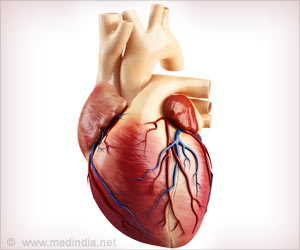Highlights
- Coronary heart disease (CHD) is widely prevalent and is responsible for nearly half of the heart disease related deaths in the US
- Elevated LDL cholesterol and triglyceride levels are major risk factors for coronary heart disease
- Nearly a quarter of the American population display elevated LDL cholesterol or triglyceride levels
- New study finds that intake of Eicosa Pentaenoic Acid and Docosa Hexaenoic Acid omega-3 fatty acids causes significant reduction in risk of CHD in persons with elevated LDL cholesterol and triglyceride levels
Regular consumption of EPA (Eicosapentaenoic Acid) and DHA (Docosahexaenoic Acid) omega-3 fatty acids could contribute to a significant reduction in coronary heart disease (CHD), according to a comprehensive meta-analysis published in the Mayo Clinic Proceedings. What makes this Study Special
- The study reviewed the effects of EPA and DHA omega-3 fatty acids specifically on coronary heart disease, which is one of the main causes of heart disease related deaths in the US.
- The study reviewed data from previously conducted 16 prospective cohort studies and 18 randomized controlled trials (RCT) composed of 732,000 and 93,000 participants respectively
- Clinical outcomes such as myocardial infarction, coronary death and sudden cardiac death were assessed.
- Comparisons were made between RCT, which assess specific interventions made under controlled clinical conditions and prospective cohort studies where a large population is observed over a longer period of time.
Observations made by the Study
- A notable reduction in coronary heart disease in high risk persons - 16 percent in persons with elevated triglyceride levels and a 14 percent reduction in those with high LDL (low-density lipoprotein or bad cholesterol) levels was observed, which is considered statistically significant.
- A statistically significant 18 percent reduction in CHD was observed among all persons in prospective cohort studies with a statistically non-significant reduction of 6 percent in randomized controlled trials.
Dr. Dominik Alexander, lead author and Principal Epidemiologist for EpidStat, said, "The 6 percent reduced risk among RCTs, coupled with an 18 percent risk reduction in prospective cohort studies -- which tend to include more real-life dietary scenarios over longer periods -- tell a compelling story about the importance of EPA and DHA omega-3s for cardiovascular health."
What are EPA and DHA omega-3 Fatty Acids?
EPA and DHA are acronyms for eicosapentanoic acid and docosahexaenoic acid respectively. These are omega-3 fatty acids, occurring in cold water fish. Fish oil, eggs, dairy products and seaweed are some of the sources of EPA and DHA. EPA and DHA are highly unsaturated fats since they contain six and five double bonds on their long structural chains.
Replacing saturated fatty acids with unsaturated fatty acids in the diet or taking nutritional supplements has been shown to be beneficial in reducing incidence of coronary heart disease and Alzheimer’s disease
How EPA and DHA Omega-3 Fatty Acids Reduce CHD Risk?
In addition, they also increase platelet responsiveness to subtherapeutic anti-coagulation treatment such as aspirin.
Adam Ismail, Executive Director of GOED echoes the above sentiments and adds that increasing omega-3 intake involves simple measures as modifying one’s diet similar to salt reduction or increasing dietary fiber intake. This simple and inexpensive measure could in fact go a long way in optimizing the health of the person.
What the Mayo Editorial Says About the Study
The importance of the study has also been mentioned in an accompanying Mayo editorial. According to the write-up, “The meta-analyses of Alexander and colleagues suggests that omega-3 fatty acid intake may reduce risk of adverse CHD events, especially among people with elevated levels of TGs or LDL-C....omega-3 fatty acid intake of at least 1 gram of EPA+DHA per day, either from seafood or supplementation(as recommended by the American Heart Association), continues to be a reasonable strategy,".
Scope of Future Research
Study authors point out that future research with special focus and emphasis on CHD outcomes may provide an even better understanding of the mechanisms of the beneficial relationship between EPA/DHA and CHD risk. Current RCTs employ different baseline CHD status for study volunteers, utilize several methods for patient selection and randomization and last for varying duration of time. In future, studies could
- Include larger number of participants to offset dropout rates in long duration trials.
- Create uniform diagnostic criteria for patient selection.
- Have the wherewithal to pinpoint any effect in current clinical conditions.
- Estimate baseline omega-3 intake or status of study participants to assess how it could affect the outcome of the study.
References:
- Omega-3 Fatty Acids EPA and DHA: Health Benefits Throughout Life - (http://advances.nutrition.org/content/3/1/1.full)
- The health effects of dietary unsaturated fatty acids - (http://www.eufic.org/article/en/nutrition/fats/rid/health-effects-dietary-unsaturated-fatty-acids-Summary/)
Source-Medindia
















